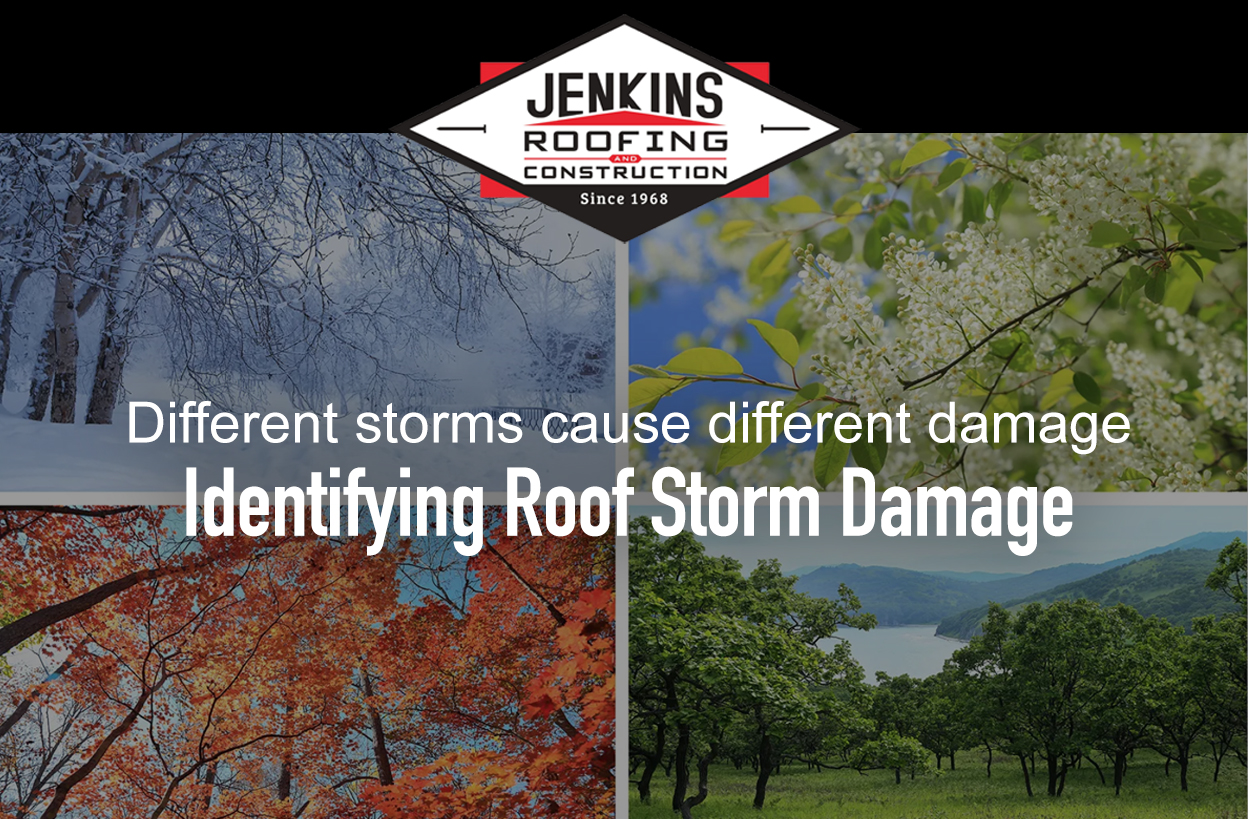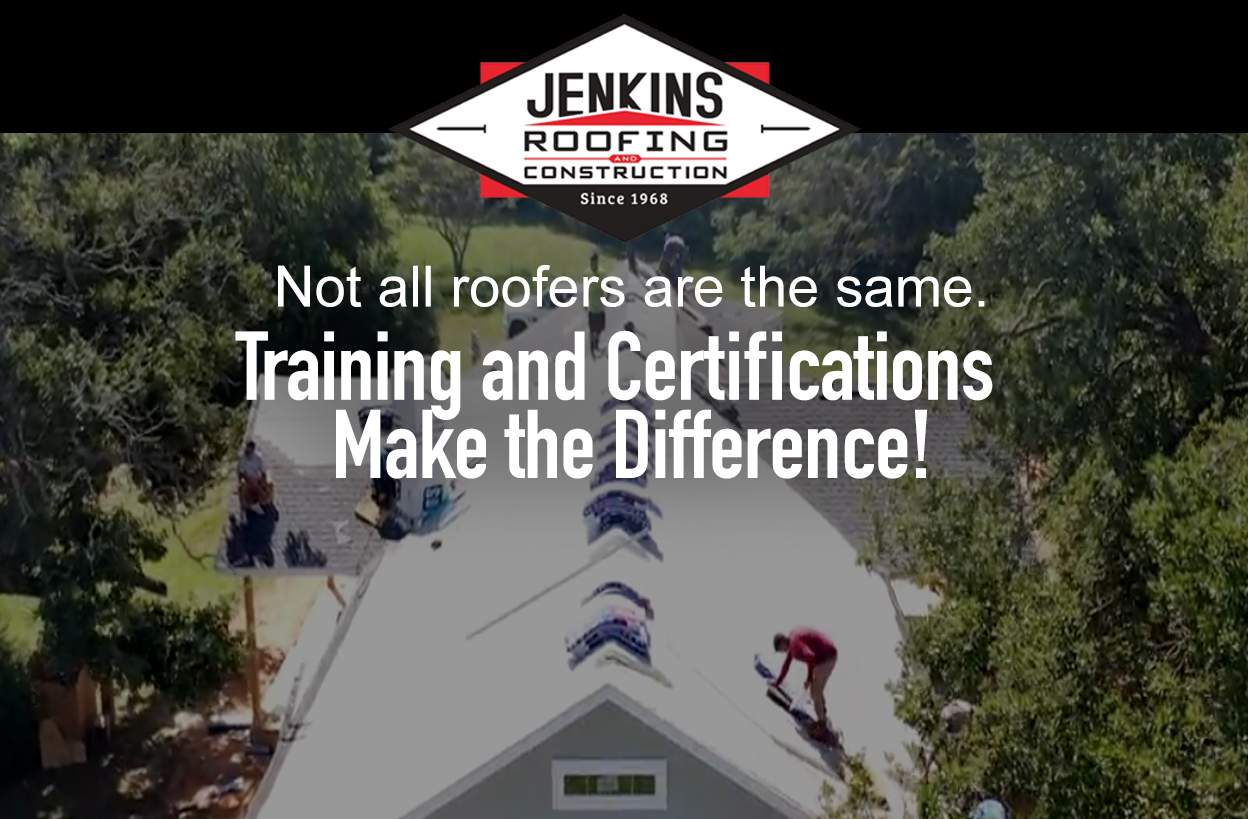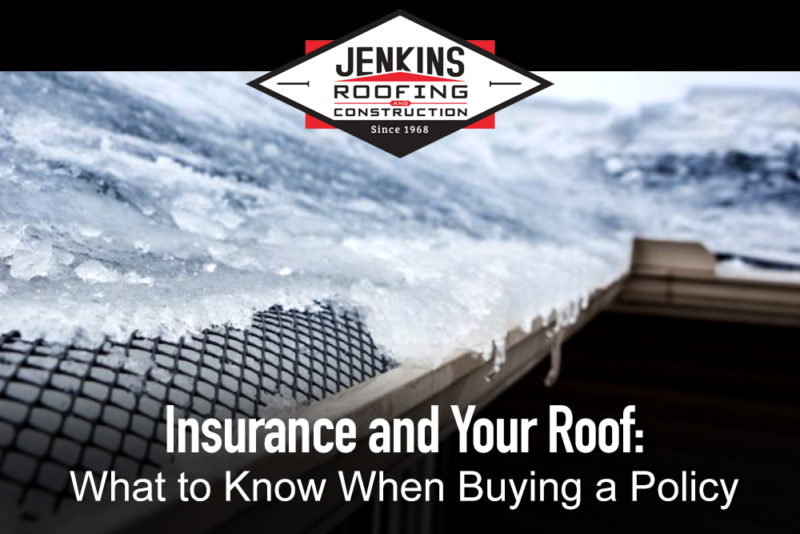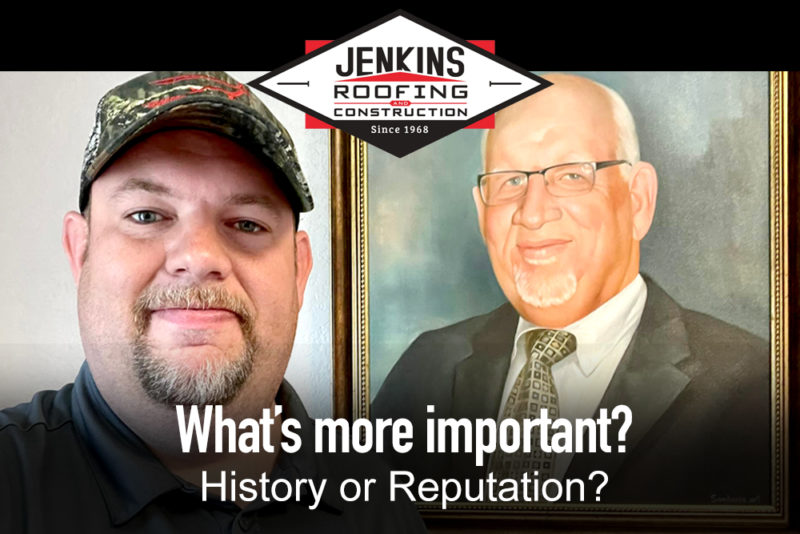Jenkins Roofing and Identifying Storm Damage


Storms come in all shapes and sizes here in Texas. It’s not uncommon for tornadoes to sweep through the Dallas-Fort Worth area during the spring months or hail to hit, causing all sorts of havoc. Wet winter storms sweep through north Texas, as well, causing ice and for roads to close down. All these weather conditions can cause storm damage to your home, and often, it’s the roof that takes the biggest hit.
Texas storms often result in the need for roof leak repair, and as an Arlington Texas roofing contractor, we can help you experience the “calm after the storm”. The expertise of us being a local roofing contractor is helpful when it comes time to fix your roof due to storm damage. Jenkins Roofing and Construction is a 3rd generation company who lives here and works here, just like you do. We provide honest and free roof inspections to help you identify storm damage, if any happened.
Storm damage in north Texas and the Arlington, Texas area typically falls into one of these categories.
Water Damage
Heavy rains can damage shingles, knocking the granules off the shingle surfaces. These granules are there to help deflect the sun from the roof, which keeps the house cooler during hot summer months. During a storm, heavy rains pound these granules off, especially if the roof is showing some age. These granules then wash down into the gutters and get caught with leaves, sticks, and other debris.
Too much moisture is bad for a roof. Moisture leaks into weak spots – small cracks, loose flashing, or vent seams – and gets into the house. You’ll notice this when it shows up as water spots on the ceilings. Trapped moisture often leads to mold and mildew, both of which can lead to severe health problems for those with respiratory issues. If you suspect you have water damage, call a local roofing contractor to come out and advise you on roof leak repair for your DFW, Texas home.
Wind Damage
Heavy winds can also damage shingles. Wind catches the edges of loose shingles, prying them up or tearing them off. Strong winds also blow tree limbs down. The best way to avoid wind damage is to have a roof inspection done annually. An inspection will uncover any issues you have with loose or damaged shingles, allowing you time to take care of the problem before the next storm hits. Also, if you have trees with branches that overhang the house, keep the branches trimmed back away from the roof. That way, if they come down in a severe wind storm, your roof is safe.
Hail Damage
Hail damage is very common in north Texas, but it’s hard for the average homeowner to spot damage on a roof. Hail can crack or otherwise damage shingles, making them susceptible to leakage. Hail also knocks off those granules we discussed earlier. Jenkins Roofing and Construction will come to your house and assess the situation. If roof repair or replacement is needed, we will guide you on filing a claim with your insurance company.
Snow and Ice Damage
Snow and ice can also cause problems. Snow gets heavy, and if it’s on the roof for too long, you may end up with leaks or other moisture issues. In freezing weather, ice build-up leads to ice damming, a condition where ice forms under the flashing. This is most typical for our Dallas-Fort Worth-Arlington area. As snow melts, it runs down toward the gutters, where it freezes and starts backing up onto the roof. This traps water underneath the ice, which can cause significant roof damage. Keep your gutters clean during the winter months, and use a broom to sweep heavy snow off the roof if the weather stays too cold for it to quickly melt.
Heat Damage
Although we don’t consider heat to be a type of “storm” we do know that heat damage is a serious issue with homes in Texas. Over time, if your roof is exposed to too much heat, the shingle will begin to crack. Cracked shingles have lost their flexibility and will soon be susceptible to leaks. Heat can dry out your shingles and make them shrink and form blisters.
As a business and home owner, we understand that a roof over your head provides such peace of mind. After a storm hits, Jenkins Roofing and Construction wants to assure you that we will create the calm after the storm (service without hassle) by providing you with an honest, professional and thorough roof inspection. We are not storm chasers and only want the best for our fellow community members.
Knowledge is power, and experience is key! We are here to help if you happen to experience any type of storm damage to your roof..




